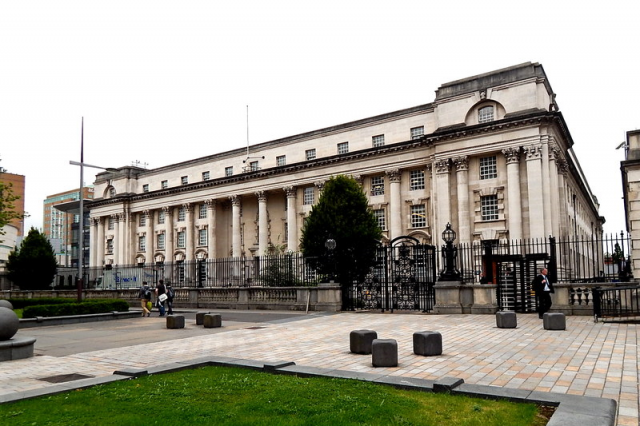This week has seen a number of announcements made which will have a bearing on the process of UK withdrawal from the EU.

Judicial Reviews in Northern Ireland
During three days of hearings this week at the High Court in Belfast, arguments were heard in relation to, amongst other things, the use of the royal prerogative to trigger Article 50 and the relationship between the Good Friday/Belfast Agreement and the legality of UK withdrawal from the EU. It was reported that amongst the arguments heard regarding the latter was one made by the Attorney General who, setting out a post-Brexit future, argued that:
Not one word or phrase in the Belfast Agreement or phrase in the British-Irish Agreement has been affected.
It has been reported that Mr Justice Maguire has stated that he will give ‘immediate consideration to the case’ and ‘It is expected the court may reconvene pending the outcome of similar legal challenges to Brexit to be heard in London next week’. [1]
Announcements at the Conservative Party Conference
Prime Minister Theresa May took the opportunity of the Conservative Party Conference in Birmingham to set out the Government’s initial approach to the process of leaving the EU. She stated that the government would not be giving ‘…a running commentary or a blow-by-blow account of the negotiations’ but she did address ‘the timing, the process – and the Government’s vision for Britain after Brexit’.
In her speech last Sunday, she made clear that the Government, rather than Parliament, would trigger Article 50 and that this would happen by the end of March 2017.
She also revealed that the Government would introduce a Great Repeal Bill to remove the European Communities Act 1972 from the statute book. In parallel with the repeal of the 1972 Act, the body of existing EU law would be converted into British law which could be amended, repealed or improved by Parliament (this would be subject to international agreements and treaties, including potential trade deals with the EU).
Mrs. May also set out her stance on the involvement of the devolved administrations, saying that while the Government would work with and consult them, negotiating the new relationship between the UK and the EU was the responsibility of the UK Government alone.
The Prime Minister emphasised that this new relationship would not be a ‘Norway model’ or ‘Switzerland model’ but rather ‘… an agreement between an independent, sovereign United Kingdom and the European Union’.
Statement from Chancellor of the Exchequer on EU funding
Also speaking at the Conservative Party, Philip Hammond, Chancellor of the Exchequer, moved to reassure British businesses and other organisations bidding to receive EU funding. In addition to guaranteeing the funding for projects signed prior to this year’s Autumn Statement, the Chancellor announced that ‘the Treasury will offer a guarantee to bidders whose projects meet UK priorities and value for money criteria… …that if they secure multi-year EU funding before we exit… …we will guarantee those payments after Britain has left the EU’.
Responding to the announcement, Máirtín Ó Muilleoir, Finance Minister, welcomed Mr. Hammond’s commitment but highlighted that it did not include a guarantee on how European funding streams would be replaced in the future. The Minister went on to say that:
I remain concerned that we are facing into economic turbulence at a time when the Conservative Government is cutting our resource budgets by 4% between now and 2020. Removing that threat to our budgets would be the single biggest stimulus the British Government could provide to ensure we can navigate the choppy economic waters ahead.
Irish Government Statement on Preparations for Brexit and All-Island Civic Dialogue
On Tuesday, the Irish Government published a statement on its preparations for Brexit. The ‘next steps’ set out in the statement include:
An all-island Civic Dialogue on Brexit with the initial meeting to be hosted by the Taoiseach and the Minister for Foreign Affairs and Trade on 2 November in Dublin. Invitations will be extended to a broad range of civic society groups, trade unions, business groups and non-governmental organisations as well as representatives of the main political parties on the island.
The conference programme would broadly cover potential Brexit implications across the main areas of concern for Ireland:
- the economy and trade
- the Peace Process
- the common travel area and the border
- the future of the EU
The main output will be a report and recommendations which will be used to help inform the Government’s position on issues related to the UK’s exit negotiations. Representatives from political parties in Northern Ireland will be invited to participate in the dialogue.
Scottish Parliament
This week also saw the publication by the Scottish Parliament’s Culture, Tourism, Europe and External Relations Committee of two externally commissioned research reports, The implications of EU withdrawal for the devolution settlement by Professor Alan Page, and The Economic Implications of Brexit by the Fraser of Allander Institute.
[1] For further coverage of this issue, see BBC articles here and here.